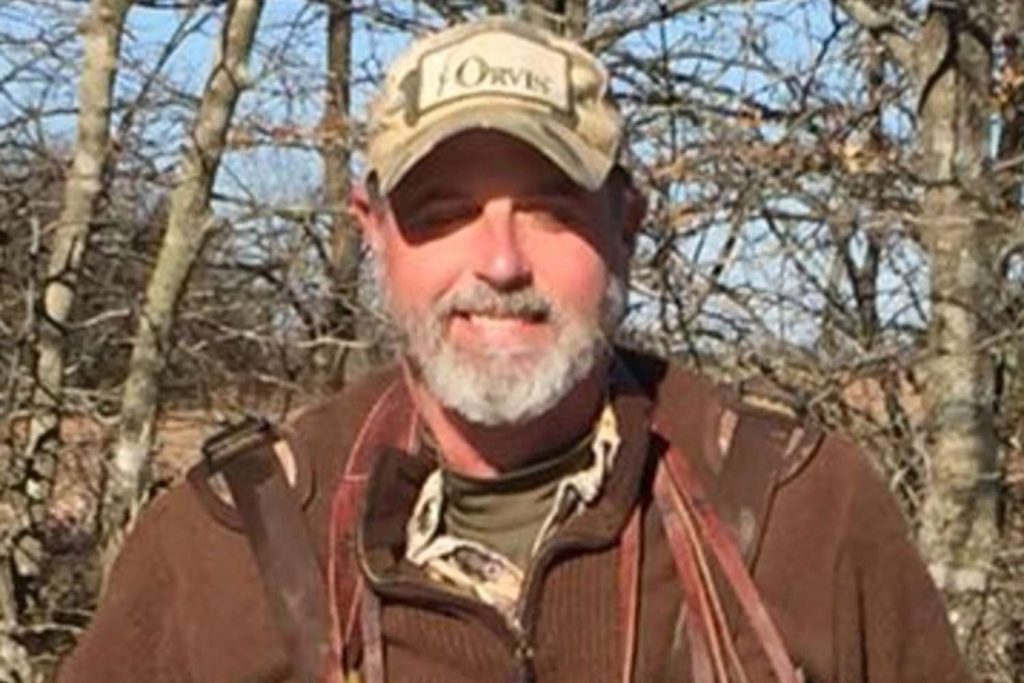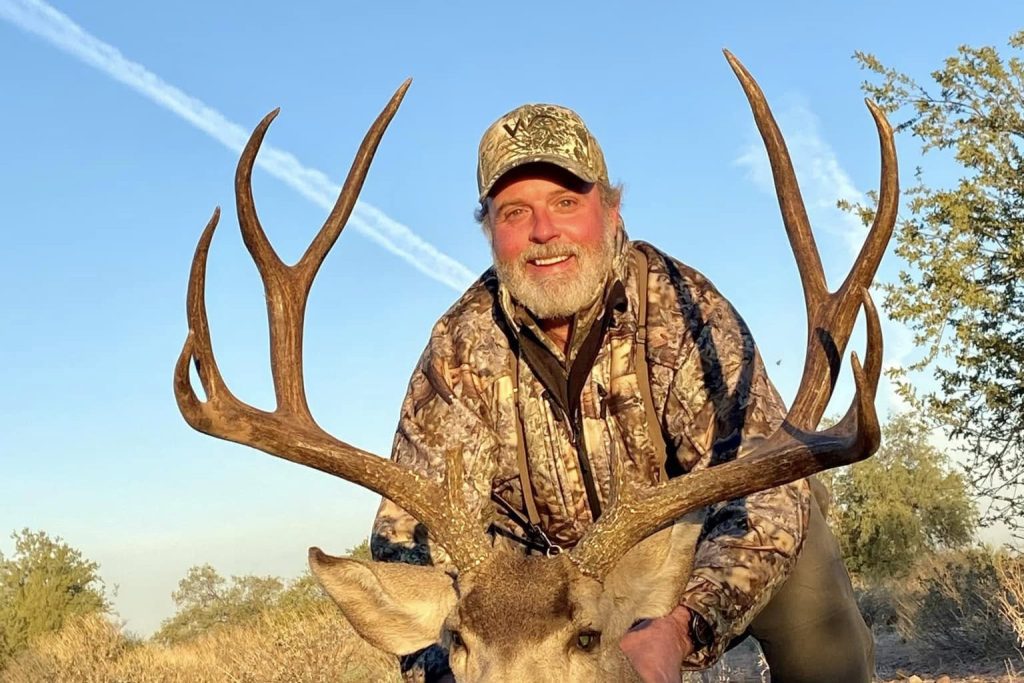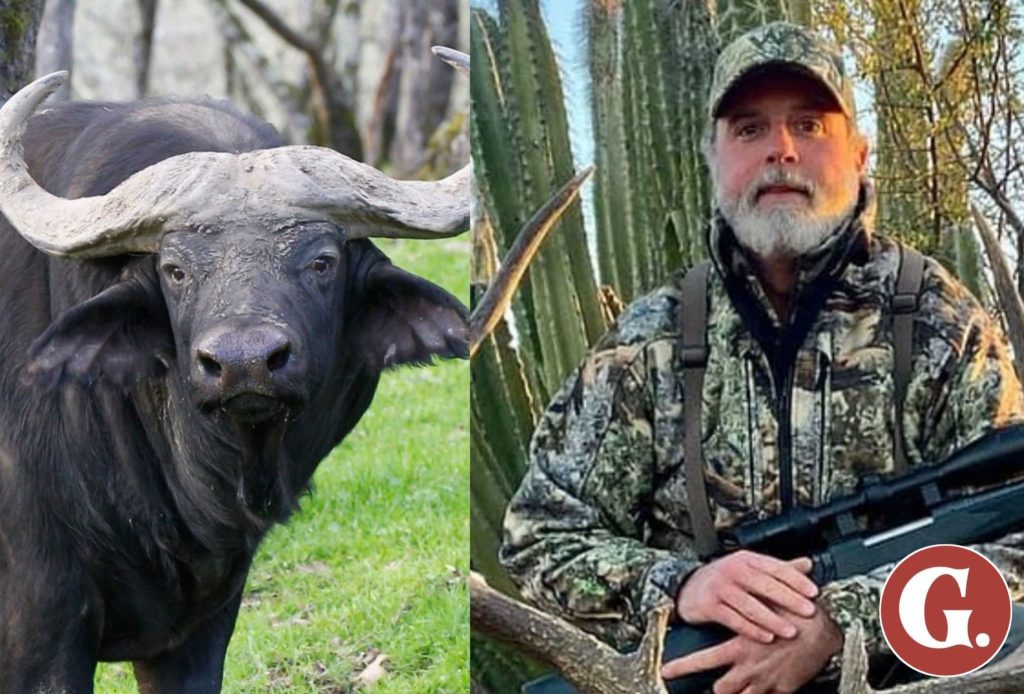Texas Millionaire Asher Watkins Killed While Hunting a Cape Buffalo in South Africa: A Shocking Reminder That Nature Is Never Tamed
Asher Watkins was not the type of man you’d expect to be taken down by the very adventure he craved. A millionaire, a successful Texas ranch broker, and a seasoned big-game hunter, Asher knew what it meant to chase danger. He had spent much of his adult life traveling across continents, facing the wild with rifles, guides, and the steady confidence that comes from believing you’ve conquered your surroundings. But in early August 2025, on a safari in Limpopo, South Africa, all of that came to a sudden and violent end.

Watkins was just 52 years old when it happened. According to South African officials and media reports, he had paid around $10,000 for a private Cape buffalo hunt—a dangerous and exclusive experience reserved for a particular kind of outdoorsman. The Cape buffalo is not some docile, safari-friendly creature. It is massive, unpredictable, and feared even by the most experienced hunters. Known as the “Black Death” across Africa, the animal is responsible for more deaths on the continent than lions and elephants combined.
That morning, Watkins set out with a professional hunter and a local tracker. They had been tracking a bull buffalo that they believed was lurking somewhere in the dense bushland. What exactly went wrong in the moments before the attack is still being pieced together. What we do know is that the buffalo charged without warning. Witnesses say it covered the distance in seconds. There was no shot fired. No last-minute save. Just a massive 2,000-pound force of muscle and horns that struck Watkins with full power. He was gored instantly and killed before he even had the chance to react.
His family—his mother, stepfather, and brother—were staying nearby at the safari lodge. One can only imagine the shock of hearing the news. In an instant, a trip that was supposed to be thrilling, luxurious, and celebratory became a nightmare. His ex-wife, Courtney, and teenage daughter, Savannah, were informed shortly after. Courtney reportedly posted a heartfelt tribute that was later taken down, perhaps because the moment became too overwhelming to share publicly.

In the days that followed, tributes and obituaries poured in from Texas and beyond. Watkins was a well-known figure in the southern ranching world. He was a managing partner at the Watkins Ranch Group, a company that specialized in buying and selling high-end rural properties. His social media showed a man deeply connected to nature, wildlife, and family. There were photos of him with deer, elk, and rifles, often smiling and surrounded by the landscapes he loved.
But the truth behind those images—and the tragedy that followed—reminds us that nature isn’t just pretty backdrops for Instagram. It’s dangerous. Wild. Unforgiving. The idea of man versus beast isn’t just something out of old adventure novels. It’s real, and sometimes the beast wins.

The incident also reopened the heated debate around trophy hunting. For many, Watkins’ death became a complicated story. Some viewed him as a symbol of old-school ruggedness, someone who lived life on his terms, embracing both the risks and rewards of the wilderness. Others saw it as a cautionary tale about the morality of hunting endangered or threatened species for sport. The Cape buffalo is not endangered, but it’s part of Africa’s iconic Big Five—animals frequently hunted for trophies—and the ethics of such hunts continue to be fiercely debated around the world.
For locals in Limpopo, this wasn’t just a headline. It was a brutal reminder of the power of the animals they live beside every day. For tourists and thrill-seekers, it was a shocking story that perhaps changed how they viewed the idea of a safari. And for Watkins’ loved ones, it was a devastating, personal loss that no amount of money, experience, or planning could have prevented.
The safari company involved has yet to comment publicly, but sources close to the operation stated that all safety measures were in place. The hunt was legally registered, the guides were trained, and Watkins had been briefed. Still, none of that mattered in the end. When the buffalo charged, instinct took over. And instinct doesn’t always care about protocol.

Back in Texas, the Watkins Ranch Group continues to operate, but without the man who gave it his name and identity. His colleagues released a short statement mourning his loss, describing him as a “visionary outdoorsman with a heart as vast as the land he loved.” Friends and clients called him generous, bold, and full of life. But now that life is gone, leaving behind questions that have no easy answers.
Why did he go back out that day? Was the buffalo provoked, or simply reacting as any wild animal would? Should anyone, no matter how wealthy or experienced, be out there trying to kill creatures known for their aggression and intelligence? These are not new questions, but they come roaring back with each such incident.
What remains is the harsh truth that no matter how many trophies you collect, how many acres you own, or how many safaris you take—you are never really in control out there. Nature has its own rules. And sometimes, it writes the ending.


